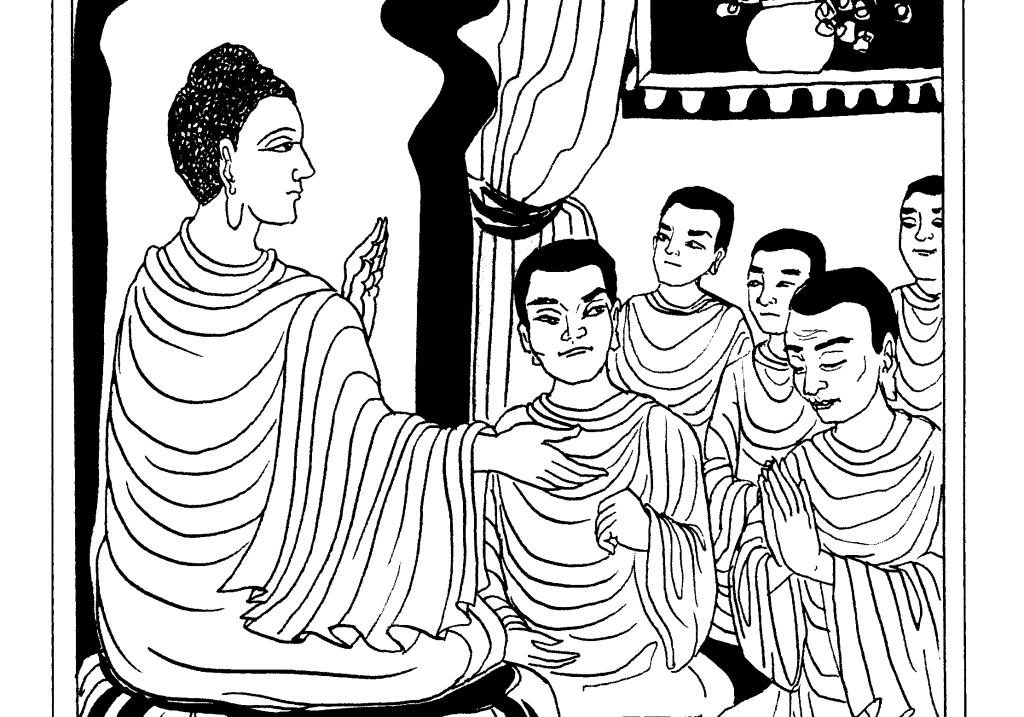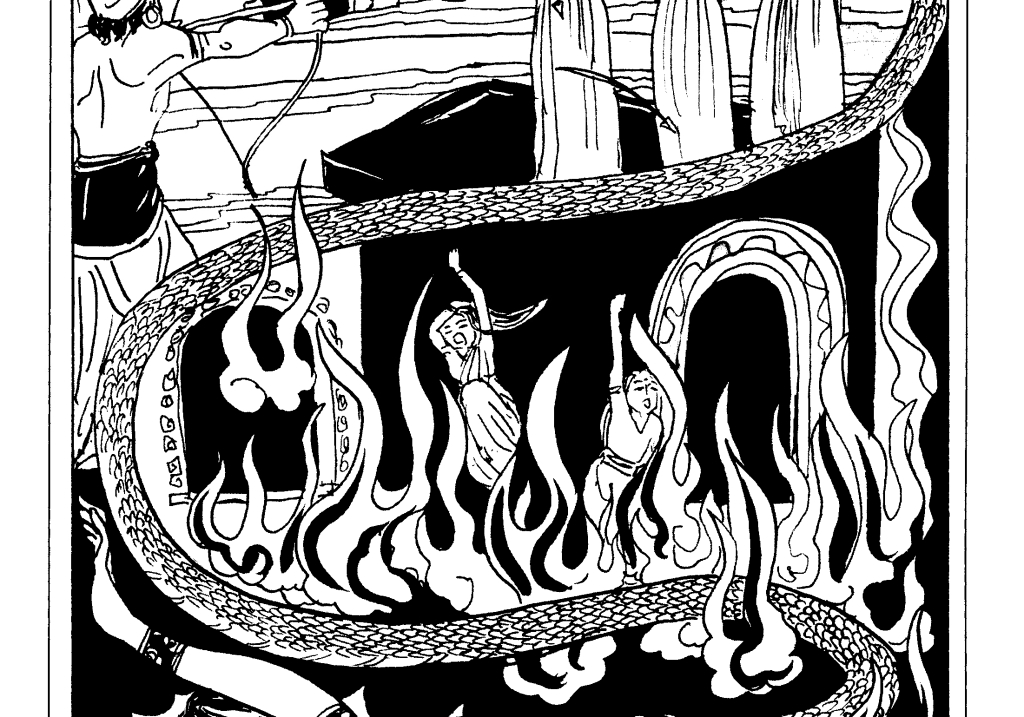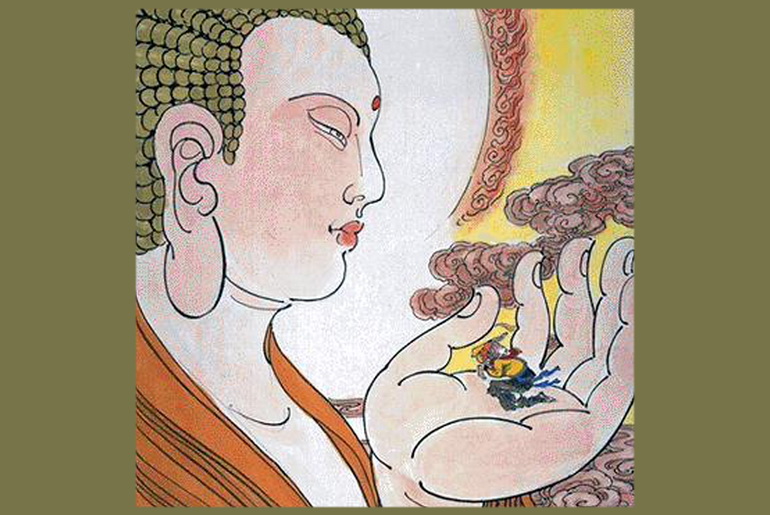Buddha (Dhammapada verse 19)
Though a person recites much of the sacred texts, but
is negligent and does not practise according to the
Dhamma, he cannot share the blessings of the holy
life, just as a cowherd, counting other people’s cows,
cannot taste the milk that comes from them.
Though a person recites only a little of the sacred texts,
Buddha (Dhammapada verse 20)
but practises according to the Dhamma and becomes
truly wise, thus forsaking lust, hatred, and delusion,
and no longer clinging to anything of this or any other
world, he indeed shares the benefits of the holy life.
3 Verse 20
ONCE THERE WERE TWO MEN who entered the monkhood at
the same time but who followed different aspirations. One
studied the sacred doctrines until he attained such a proficiency
in them that quite a number of admiring students gathered
around him to hear him teach. The other practised very hard
and eventually became an arahat with great spiritual insights.
One day, the two bhikkhus happened to meet each other
for they had gone to see the Buddha at the same time. The
proud master of the sacred texts, however, had no idea that the
monk he just met was already one of high spiritual attainments.
Treating him with disdain, as he did most monks, the scholar
wanted to embarrass the arahat in front of everyone by asking him questions from the texts which he was sure the arahat
would not be able to answer. What the scholar did not know,
however, was that whoever brought harm in any form upon an
arahat would end up being reborn in a lower world.
To prevent that from happening, the Buddha decided to
choose and ask the questions himself. He put questions concerning the higher states of meditation to the scholar monk who,
of course, could not answer them because he had not practised
what he had recited and preached. On the other hand, the second bhikkhu had no problem with the questions, answering
them humbly but yet with evident authority. When the questioning session was over, the Buddha praised the arahat generously, but made no mention of the learned scholar.
The other bhikkhus wondered why the Buddha praised the
arahat and not the illustrous teacher. The Buddha explained to
them that although the first bhikkhu was well versed in and
knowledgeable of the sacred scriptures, he did not live in accordance with the Dhamma. The Buddha compared him to a cowherd who tended somebody else’s cows only to earn money and
so did not get to drink any of the cows’ milk, while the one who
practised the Dhamma was like the owner who enjoyed not only
his cows’ milk but all the dairy products that could be made
from it as well.
Similarly, the scholar monk only enjoyed whatever services
his pupils afforded him but not the benefits of sainthood. On
the other hand, though the arahat could barely recite anything
from the sacred scriptures, through his diligent practise he had
come to understand the essence of the Dhamma and so no
longer harbored any greed, hatred, or delusion in his mind. He
thus truly reaped the benefits of sainthood.
Buddha (Dhammapada verse 19)
Though a person recites much of the sacred texts, but
is negligent and does not practise according to the
Dhamma, he cannot share the blessings of the holy
life, just as a cowherd, counting other people’s cows,
cannot taste the milk that comes from them.
Though a person recites only a little of the sacred texts,
Buddha (Dhammapada verse 20)
but practises according to the Dhamma and becomes
truly wise, thus forsaking lust, hatred, and delusion,
and no longer clinging to anything of this or any other
world, he indeed shares the benefits of the holy life.
3 Verse 20





